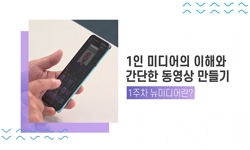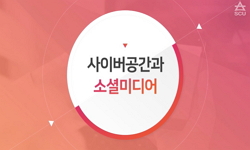This exploratory study with a small, non-representational sample attempts to explain the possible interplay between traditional Internet and social media and their combined influence on young voters’ everyday, face-to-face political discussion. Assu...
http://chineseinput.net/에서 pinyin(병음)방식으로 중국어를 변환할 수 있습니다.
변환된 중국어를 복사하여 사용하시면 됩니다.
- 中文 을 입력하시려면 zhongwen을 입력하시고 space를누르시면됩니다.
- 北京 을 입력하시려면 beijing을 입력하시고 space를 누르시면 됩니다.

The Internet and Social Media = Integrated Consequences for Political Discussion for Korean College Students
한글로보기https://www.riss.kr/link?id=A105600859
- 저자
- 발행기관
- 학술지명
- 권호사항
-
발행연도
2018
-
작성언어
English
- 주제어
-
KDC
070
-
등재정보
KCI등재
-
자료형태
학술저널
- 발행기관 URL
-
수록면
69-99(31쪽)
- 제공처
-
0
상세조회 -
0
다운로드
부가정보
다국어 초록 (Multilingual Abstract)
This exploratory study with a small, non-representational sample attempts to explain the possible interplay between traditional Internet and social media and their combined influence on young voters’ everyday, face-to-face political discussion. Assumed and tested herein was that close-tie social media use would moderate the positive influence of exposure to heterogeneous opinions on the Internet on college students’ participation in offline political discussion due to the cocooning effect inspired by circular affirmation in close networks. From hierarchical regression analyses of a sample of 123 Korean university students, results supported the negative moderation of close-tie social media use. Lighter close-tie social media users were more likely to participate in offline political discussion as a result of heterogeneous exposure than heavier close-tie social media users. In addition, close-tie social media use facilitated higher political discussion for students with lower heterogeneous exposure. In discussion, however, it was cautioned that the increased political discussion due to higher close-tie social media use may not transfer to higher perspective-taking ability and political tolerance. Implications were provided for future research.
동일학술지(권/호) 다른 논문
-
Present and Future of Advertising and Public Relations as Strategic Communication
- 한국언론학회
- Byoung Hee Kim
- 2018
- KCI등재
-
The Usage and Credibility of Information Sources for Cancer Prevention
- 한국언론학회
- Jay (Hyunjae) Yu
- 2018
- KCI등재
-
- 한국언론학회
- Wonjun Chung
- 2018
- KCI등재
-
A Study of Company Branding based on the Type of Convergence Technology and Consortium of firms
- 한국언론학회
- Koo Seunghwe
- 2018
- KCI등재




 DBpia
DBpia






